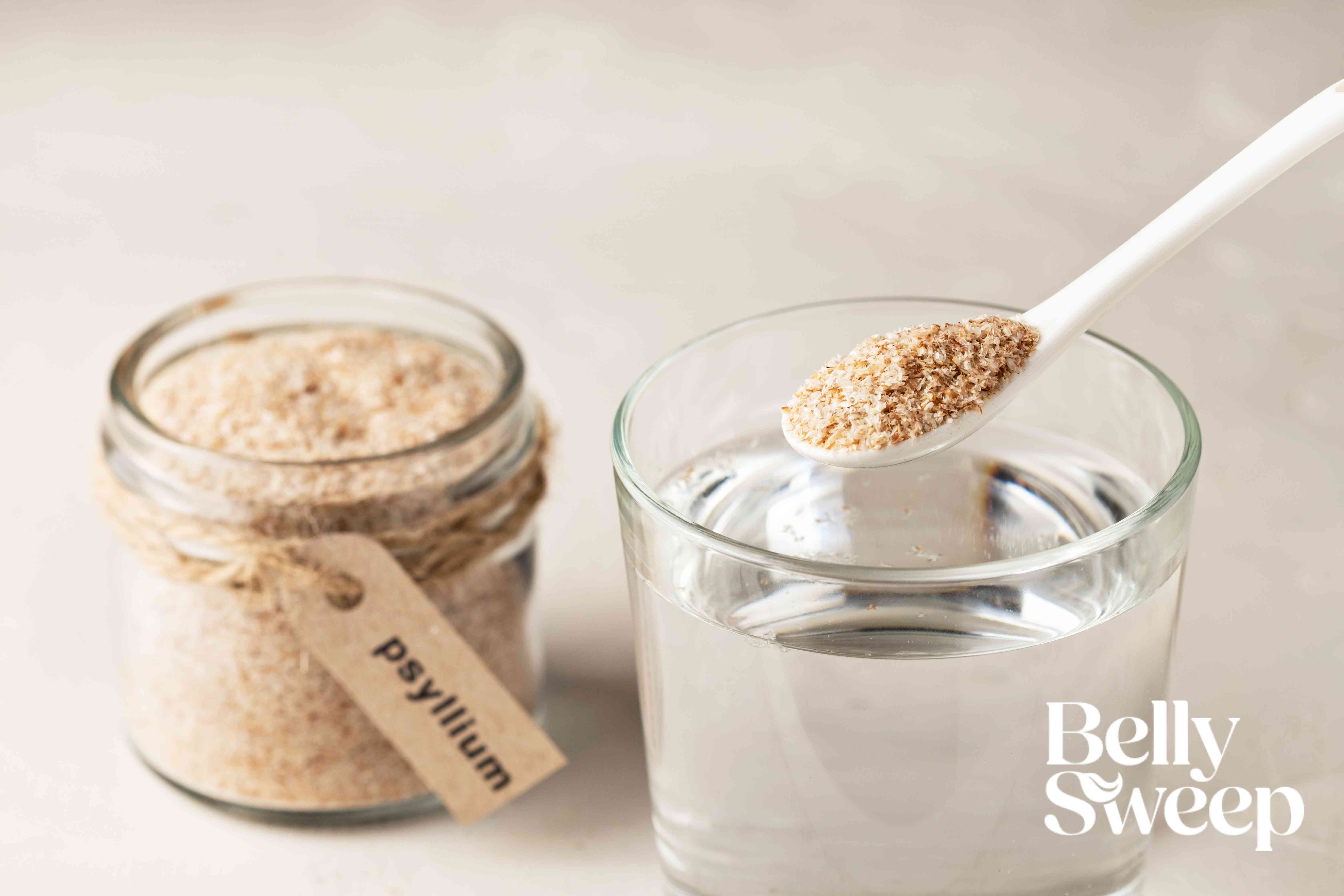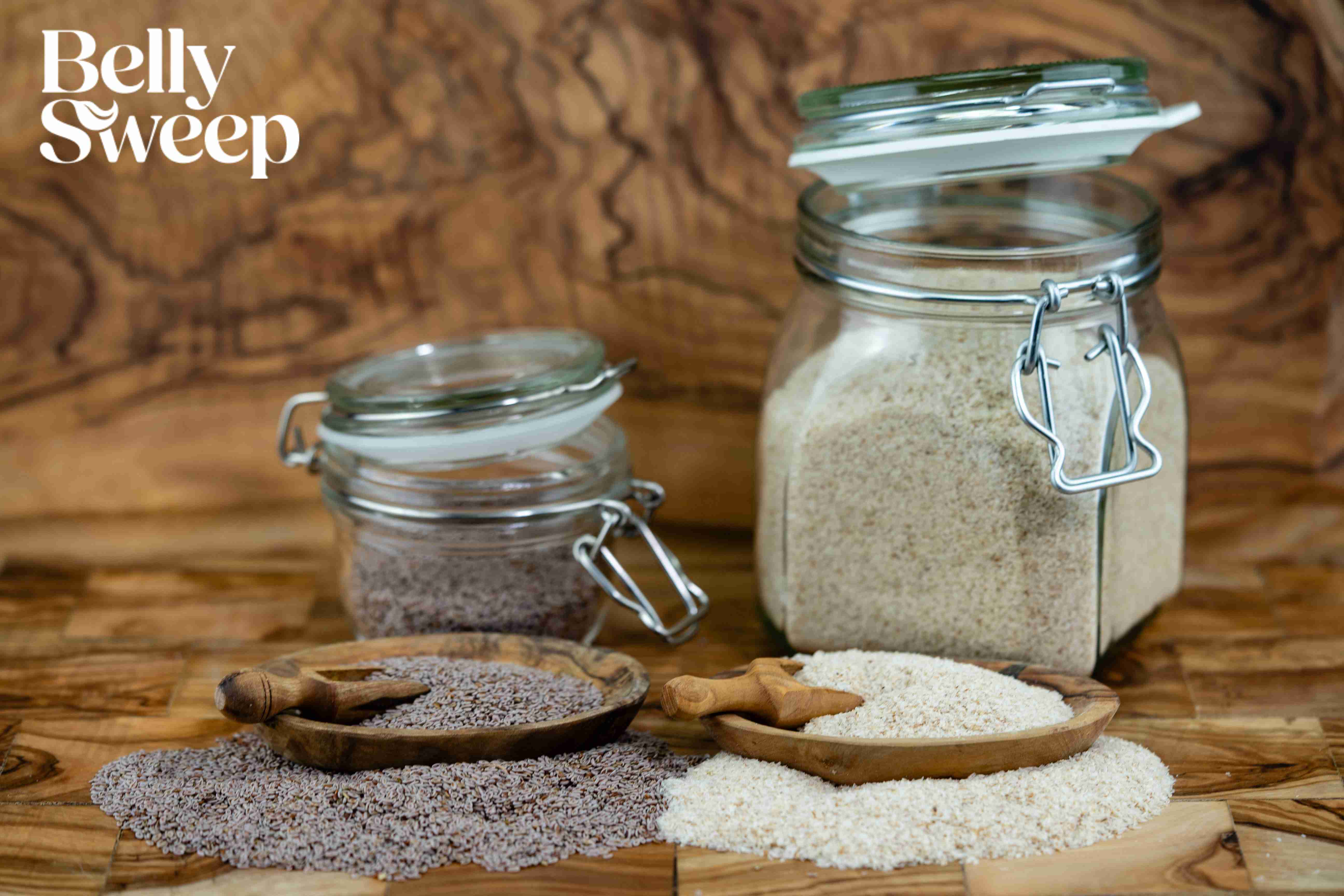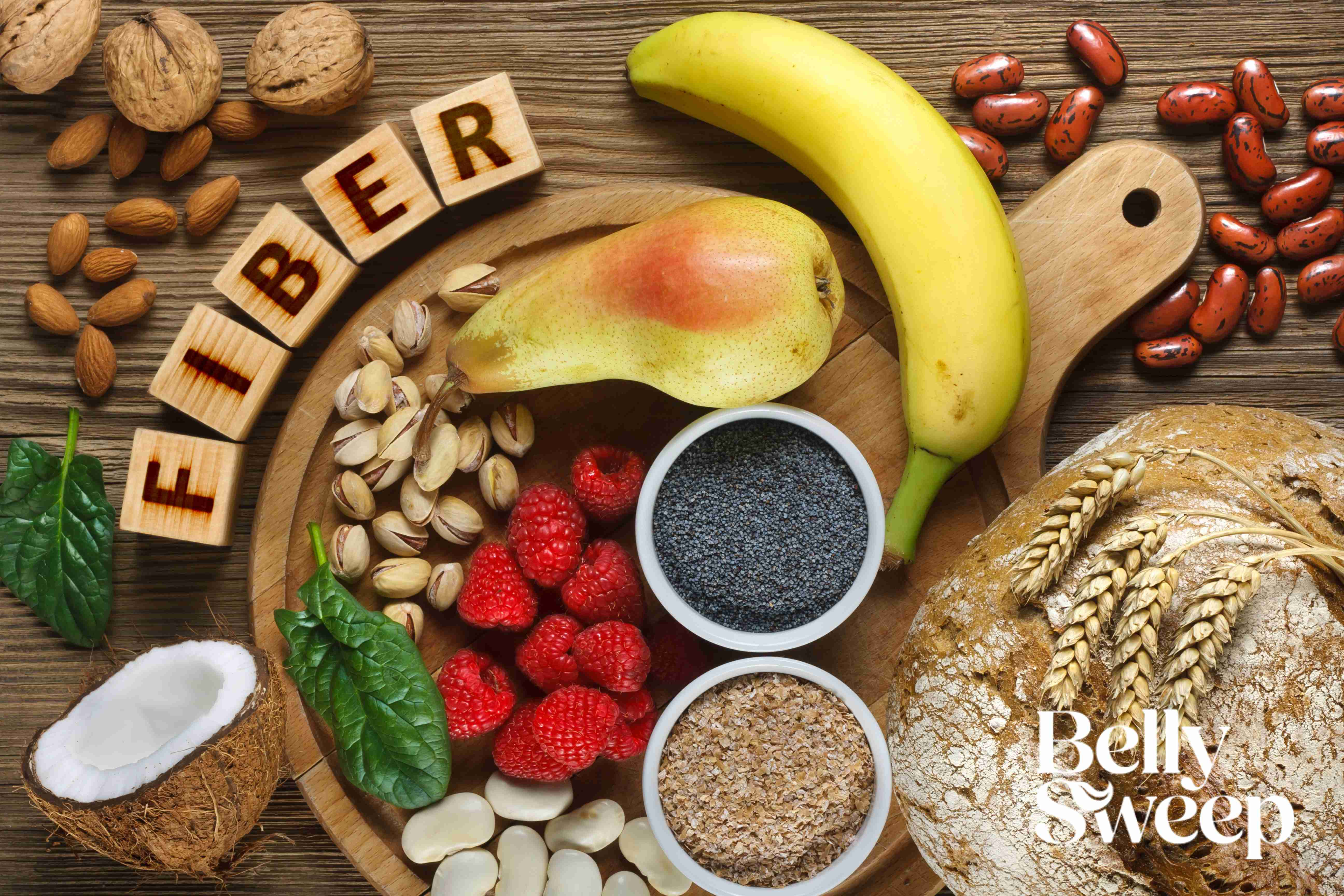Psyllium Husk Side Effects: What You Should Know Before You Start

Want to be able to feel better in body and mind but just not sure where to start? We don’t blame you! With so many different diets, exercise plans, and supplements out there, finding the right one for you has never felt more time-consuming and drawn out. The good news is that’s where we’re going to change things.
So much of what the body needs can be delivered by just a handful of natural supplements that are designed to restore balance and harmony. Psyllium husk is one such supplement, and its proven ability to improve so many different aspects of human digestion has made it an essential component of many people’s lives.
For those who want to understand the whole picture before putting something new into their body, you’ll be glad to know that we’re going to look closely at psyllium husk side effects. Only then can you make an informed decision about what’s best for your well-being?
Let’s dive in and get started!
Quick Answer: Do Psyllium Husk Side Effects Exist?
Yes, as with any supplement, there may be side effects when taking psyllium husk. While many swear by the positive impact that the supplement has on their lives, it would be foolish to ignore side effects blindly.
The most common side effects are gas and bloating, both of which are typically very mild and pass within less than a week of first consuming psyllium husk. This is largely because the body is adapting to the new balance in the gut and producing new gut flora in response. While the exact science of how this occurs is beyond the scope of this article — it varies from one person to the next depending on their microbiome — you can reasonably expect the symptoms to be mild.
Before we look in more detail at psyllium husk side effects, we first need to go back to basics and get to know this life-changing supplement.
What Is Psyllium Husk?
Psyllium husk comes from Plantago ovata and is commonly used to supplement the natural fiber levels in the modern diet. By acting as a rich source of soluble fiber, it helps users alleviate constipation and soothe a wide array of intestinal pains that have resulted from internal imbalances. The soluble fiber thickens and holds together stool, allowing it to reach the right size for the gut to excrete it from the body. This subsequently helps with digestive health and toxin elimination and also reduces the stress and strain on the gut lining.
Others take psyllium husk to reduce harmful levels of cholesterol that result in spikes in blood pressure. High, unhealthy cholesterol puts a far greater strain on the heart, resulting in a circulatory system that has to work in overdrive even when an individual lives a sedentary lifestyle.
Another common reason for taking psyllium husk is that it can help the body regulate blood sugar levels. Diabetics who struggle to maintain a healthy balance often take this rich source of natural fiber so that they can go about their daily lives.
Common Psyllium Husk Side Effects
We simply wouldn’t be giving you the whole picture if we told you there was zero probability of experiencing psyllium husk side effects. Just like any natural supplement, there may be times when your body undergoes changes for the better that can cause a mild degree of short-term discomfort. By knowing what to look for and always discussing changes to your diet with your family doctor or physician, you can make sure your body is getting everything it needs.
Here are the most common psyllium husk side effects to look out for as you embark on your new health and wellness journey.
Painful bloating
If your stomach looks more pronounced and is tender when pressed gently with the palm of your hand, you are experiencing bloating. This is a specific type of swelling caused when your body holds fluid and gas in response to a sudden change. Bloating is the most common psyllium husk side effect and typically stops in less than one week.
Repeated gas
A build-up of gas that results in frequently passing wind is another of the potential psyllium husk side effects you may experience at the very start of supplementation. This is because your body is making significant changes deep within your gut to achieve the delicate natural balance it has been searching for.
Stomach cramps
Changing the way your gut processes food and passes stool is a major change when you look at the fine details that are getting to work on the inside. If the sensitive gut lining is inflamed and the muscles become overworked, you may experience some degree of mild cramping. Reducing your fiber intake and applying a hot water bottle to your stomach is the best course of action here.
Constipation
When you increase your fiber intake, you will draw more water into your gut to help pass stool out of the body. The problem here is that it is all too easy to forget to increase your daily water intake accordingly. Chronically low water intake can result in constipation which will be quickly alleviated by drinking water throughout the day.
We also need to say a few words about the very rare psyllium husk side effects that are reported in the scientific literature.
Serious Risks or Rare Side Effects
While psyllium husk is safe for daily use, a very small number of users have reported the following issues.
Allergic reactions
It is always possible for a user to have a rare allergy to one of the naturally occurring compounds that make psyllium husk work. Common symptoms of an allergic reaction include itchy skin and hives, in which case you should stop taking the supplement and look for a natural alternative.
Throat swelling
The highly thorough nature of the scientific literature on psyllium husk means that even incredibly rare side effects, such as throat swelling, do not go undetected. If you experience throat swelling of any degree, immediately stop taking psyllium husk, reduce your other sources of fiber, and increase your water intake.
Medication interactions
These are most common with blood thinners and diabetes medication that are taken orally. The first thing to do is have a 1-hour delay between taking the medication and supplementing with psyllium husk. If the effect continues, consult your doctor or physician for further help.
How to Minimize Side Effects
Minimizing the impact of psyllium husk side effects is all about establishing the correct dose, taking it at the right times, and building up gradually. Let’s take a look at each of these important steps in turn.
Get the right dosage
Too much fiber can cause gas and bloating so it’s important to follow daily fiber intake guidelines. While there will be variation on a person-by-person basis due to the intricacies of human physiology, we recommend the following guides:
- Men should aim for 38 g per day
- Women will need 25 g per day
- Pregnant women will need 28 g per day
Balancing your fiber intake between supplements and whole foods is the best way to give your body everything it needs.
Take your supplements at the right time
A psyllium husk supplement like BellySweep can be taken 1-3 times a day by mixing it into a drink or glass of water. Many new users find that taking a smaller dose 3 times a day gives the body the best combination of a new stimulus and the time to react and adapt. Finding a routine that fits comfortably into your daily schedule will ensure that you keep on track.
Step things up gradually
Making changes in the complex domain of gut and digestive health is something you shouldn’t feel you have to rush. Yes, you want to look and feel better as soon as possible, but that shouldn’t come at the expense of your overall happiness and well-being. Gradually increasing your fiber intake — both through supplementation and balanced eating — over the course of 2 weeks will give your body sufficient time to adapt. Exactly what’s needed when you want to get the most out of the new natural balance you’re striking deep within the gut.
FAQs
Is psyllium husk safe for long-term use?
Psyllium husk is ideally suited to long-term use because of its 100% natural formulation. By only putting naturally occurring substances into your body, a properly formulated psyllium husk supplement provides the natural helping hand your digestive system needs.
How much psyllium husk is too much?
While there is a guideline dosage range displayed as part of the user instructions, it’s important to note that every human body is unique. What may be optimal for one person may prove to be a little too much for another. In the case of excessive consumption, you can expect to experience mild bloating, gas, and discomfort. Reducing the dosage until these symptoms subside is always the best approach.
Can I take psyllium husk while pregnant or breastfeeding?
Psyllium husk is rarely absorbed into the bloodstream and, therefore, unable to cross over to the fetus or into the breast tissue. For this reason, experts agree that it is safe to take psyllium husk while pregnant or breastfeeding a baby.
Does psyllium husk interact with medications?
There is always a small probability that one of the psyllium husk side effects you may experience involves interaction with medication. All supplements have this probability and it is not something to be concerned by. If you take an oral medication, we suggest waiting 60 minutes before taking your psyllium husk supplement.
Final Thoughts
When your body undergoes positive changes it is natural for it to sometimes feel a little worse before feeling much better. This is because your body is adapting to the new sense of balance it is striking on the inside so that you can feel better for the rest of your life.
Some new users of psyllium husk report short-term gas and bloating of a very mild nature. If you experience these types of issues, the best approach is to reduce your dosage of psyllium husk so that your body can transition more gently. Others report constipation, and it is virtually always cured by increasing your daily water intake.
By learning to listen to the signs and signals your body gives off, you can create a sense of balance that stays with you for life.
Let your health and wellness adventure begin!
Scientific References:
- Anderson, J. W., Allgood, L. D., Lawrence, A., Altringer, L. A., Jerdack, G. R., Hengehold, D. A., & Morel, J. G. (2000). “Cholesterol-lowering effects of psyllium intake adjunctive to diet therapy in men and women with hypercholesterolemia: meta-analysis of 8 controlled trials.” American Journal of Clinical Nutrition, 71(2), 472-479.
https://doi.org/10.1093/ajcn/71.2.472 - Pal, S., Khossousi, A., Binns, C., Dhaliwal, S., & Ellis, V. (2011). “The effect of a psyllium fiber supplement on insulin resistance and components of the metabolic syndrome in overweight and obese individuals.” British Journal of Nutrition, 105(3), 402-409.
https://doi.org/10.1017/S0007114510003712 - Eswaran, S., Muir, J., & Chey, W. D. (2013). “Fiber and functional gastrointestinal disorders.” American Journal of Gastroenterology, 108(5), 718-727.
https://doi.org/10.1038/ajg.2013.63 - Vuksan, V., Jenkins, D. J. A., Spadafora, P., Sievenpiper, J. L., Owen, R., Vidgen, E., & Brighenti, F. (1999). “Konjac-Mannan and Psyllium: Emerging Alternative Viscous Fibers for Lowering Cholesterol and Controlling Diabetes.” Current Opinion in Lipidology, 10(6), 563-571.
https://doi.org/10.1097/00041433-199912000-00003 - McRorie, J. W., & Chey, W. D. (2016). “Fermented vs. non-fermented fiber: Implications for gut health and the treatment of constipation.” Alimentary Pharmacology & Therapeutics, 43(8), 899-915.
https://doi.org/10.1111/apt.13543 - Singh, B. (2007). “Psyllium as therapeutic and drug delivery agent.” International Journal of Pharmaceutics, 334(1-2), 1-14.
https://doi.org/10.1016/j.ijpharm.2007.01.028 - Floch, M. H., Walker, W. A., Madsen, K., Sanders, M. E., Macfarlane, G. T., Flint, H. J., Dieleman, L. A., Ringel, Y., Guarner, F., & Brandt, L. J. (2011). “Recommendations for probiotic use—2011 update.” Journal of Clinical Gastroenterology, 45(3), S168-S171.
https://doi.org/10.1097/MCG.0b013e31822ff822 - Maki, K. C., Carson, M. L., Miller, M. P., Turowski, M., Bell, M., Wilder, D. M., Rains, T. M., & Reeves, M. S. (2008). “High-molecular-weight hydroxypropylmethylcellulose blunts postprandial glycemia in individuals with type 2 diabetes mellitus.” Journal of Nutrition, 138(1), 139-143.
https://doi.org/10.1093/jn/138.1.139 - Slavin, J. L. (2008). “Dietary fiber and body weight.” Nutrition, 24(4), 353-358.
https://doi.org/10.1016/j.nut.2007.12.006 - Marlett, J. A., McBurney, M. I., & Slavin, J. L. (2002). “Position of the American Dietetic Association: Health implications of dietary fiber.” Journal of the American Dietetic Association, 102(7), 993-1000.
https://doi.org/10.1016/S0002-8223(02)90228-2








